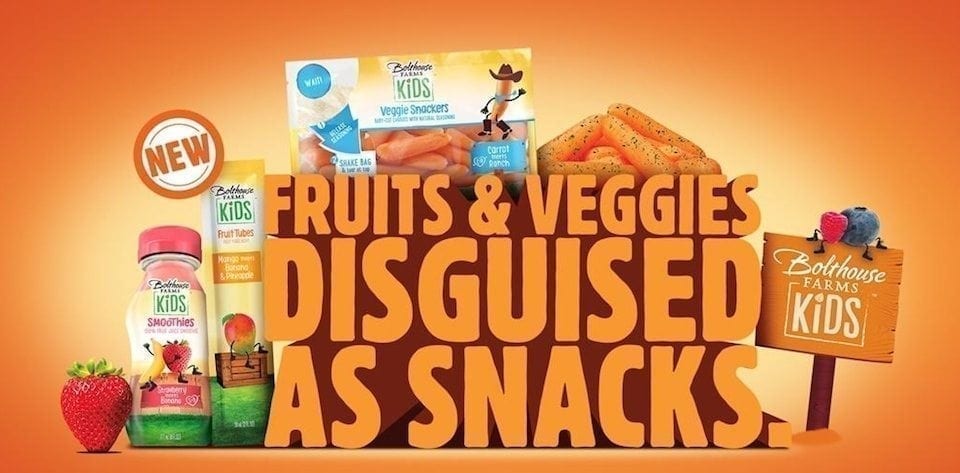The short answer: more kids would eat them! And it’s a strategy produce company Bolthouse Farms is banking on. They’ve recently introduced a campaign to disguise fruits and vegetables as snacks—think: chip-flavored packs of carrots, like ranch and chili lime, and pureed fruit tubes featuring animated characters.
Bolthouse Farms is one of the largest producers of baby carrots and juices in North America, and they’re among the leading healthy brands to innovate their packaging with colorful junk-food-like call-outs—if not the first in the produce department.
“We believe that stealing a play out of the junk food playbook is a way for us to make these kinds of foods more emotive, more reachable, more accessible, more affordable, and that will increase consumption overall,” Todd Putman, chief commercial officer at Bolthouse Farms told Fast Company.
It’s all in an effort to get kids to eat more fruits and vegetables, and to learn the importance of healthy choices early in life. And there’s evidence that this kind of marketing works. In fact, the number of students choosing veggies at lunch increased by 250% when a company called Super Sprowtz put its vegetable superhero characters on healthy snacks at a school salad bar.
Bolthouse Farms is also in talks with Sesame Street, so don’t be surprised if Elmo makes an appearance on fruits and veggies in your grocery store soon.
We’re big fans of the re-branded baby carrots! Would your kids reach for these? Better yet, would you?




